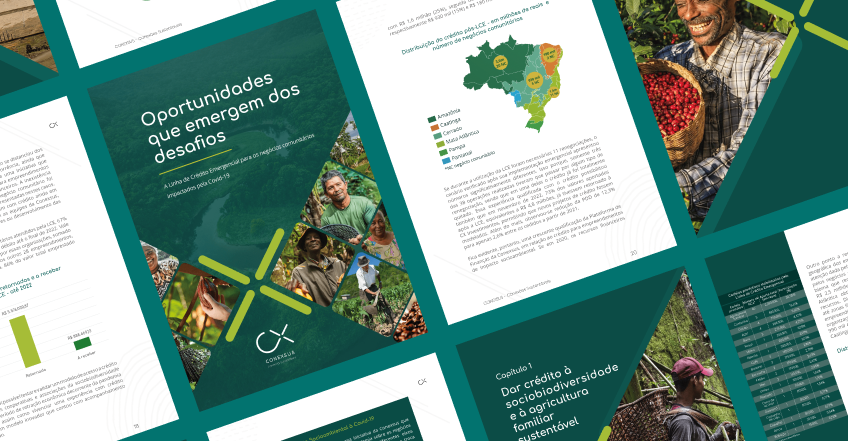In March 2023, Conesxus published an appraisal of its emergency line of credit, setting out lessons learned and the impacts achieved by this initiative. Learn about this project and its main results.
In 2020, in order to minimize inequalities caused by the COVID-19 pandemic, Conexsus, in partnership with the National Union of Family Farming and Solidarity Economy Cooperatives (UNICAFES), the National Council of Extractive Producers and Fundo Vale, created the COVID-19 Response Plan.* The aim was to alleviate the impact of the economic crisis unleashed on sustainable community businesses.
The plan was structured after a survey of 131 rural and forestry community businesses was carried out. An emergency line of credit was then developed for small farmers and extractive producers, which helped 82 organizations in 21 Brazilian states remain active.

In 2023, Conesxus published an appraisal of this initiative to encourage reflection on the design and implementation of the emergency line of credit.
Here are the program’s main highlights, according to Conesxus:
· The 82 selected organizations benefited from loans amounting to R$6.4 million (around R$2.5 million or 39% in the Amazon region alone). Of these organizations, 11 subsequently needed to renegotiate their agreement to adjust the loan payments to their circumstances.
· Between 2020 and 2022, more than R$15 million was granted in funding through the emergency line of credit.
· Through partnerships, it was possible to loan capital for 18 months. With more time to meet their loan obligations, the organizations were able to keep producing, sell their products and use the profits to pay back the resources.
· By the end of 2022, 86% of the loans had been repaid, and of the 11 community businesses that had renegotiated their agreements, five had fully cleared their debts.
*This initiative was also supported by the Pão de Açúcar supermarket chain, through the GPA Institute, the Arymax Foundation, the Good Energies Foundation, CLUA, the Humanize Institute, B3 and USAID.
